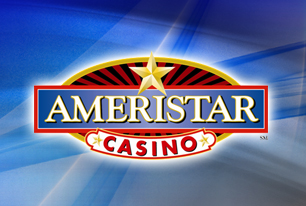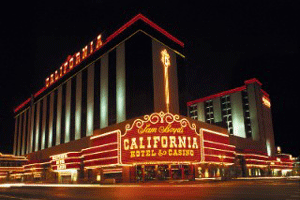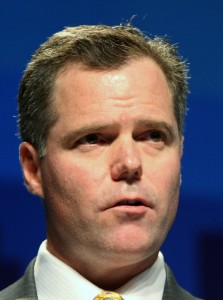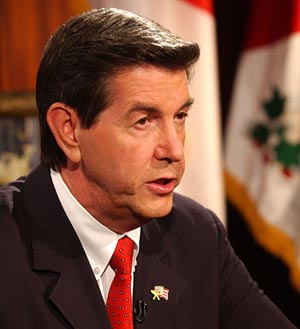 While nobody quite matched the $221 million loss posted by Caesars Entertainment, the gaming industry didn’t lack for underachievers in 3Q12, thanks largely to softness in domestic casino markets. Ameristar Casinos reported a $16 million profit, despite a 2% revenue decline. Slightly improved performance in Colorado was offset by new competition in Kansas City (-7%) and the road-construction issues to that continue to bedevil Ameristar East Chicago (-8.5%).
While nobody quite matched the $221 million loss posted by Caesars Entertainment, the gaming industry didn’t lack for underachievers in 3Q12, thanks largely to softness in domestic casino markets. Ameristar Casinos reported a $16 million profit, despite a 2% revenue decline. Slightly improved performance in Colorado was offset by new competition in Kansas City (-7%) and the road-construction issues to that continue to bedevil Ameristar East Chicago (-8.5%).
J.P. Morgan analyst Joseph Greff praised Ameristar’s ability to generate cash flow (“yields among the strongest in the sector”) but advised caution in “no-to-slow-growth” markets such as ![]() those which are Ameristar’s bread and butter. His colleague at Deutsche Bank, Carlo Santarelli, applauded Ameristar’s cost-control methods but also worried that “a soft domestic consumer, new competition, and limited near-term growth … largely offset potential upside stemming from a long-term growth driver in Lake Charles and less cannibalization fears than regional peers.” CEO Gordon Kanofsky talked up a pair of big-ticket new projects, only one of which is a certainty: $570 million, 7,000-room (!) Ameristar Casino Lake Charles, opening in late-summer 2014. In Massachusetts, Kanofsky hopes to knock ’em dead with a $910 million (!!), 3,300-slot Springfield casino, but he’ll have to outdo presentations from Penn National Gaming and MGM Resorts International, too.
those which are Ameristar’s bread and butter. His colleague at Deutsche Bank, Carlo Santarelli, applauded Ameristar’s cost-control methods but also worried that “a soft domestic consumer, new competition, and limited near-term growth … largely offset potential upside stemming from a long-term growth driver in Lake Charles and less cannibalization fears than regional peers.” CEO Gordon Kanofsky talked up a pair of big-ticket new projects, only one of which is a certainty: $570 million, 7,000-room (!) Ameristar Casino Lake Charles, opening in late-summer 2014. In Massachusetts, Kanofsky hopes to knock ’em dead with a $910 million (!!), 3,300-slot Springfield casino, but he’ll have to outdo presentations from Penn National Gaming and MGM Resorts International, too.
 A modest loss, some $16 million, dimmed Boyd Gaming‘s luster, as it came in well below analyst expectations. Greff noted that the company is heavily exposed in markets with limited growth prospects (like Atlantic City and … Las Vegas) and 4Q12 will probably be no better. A strong marketing push in Hawaii lifted Boyd’s Downtown performance but Hurricane Isaac inflicted worse-than-expected damage on the company’s Dixie numbers. CEO Keith Smith tried to push back by highlighting improvement in net revenue (up 24%) in the Midwest and deep South, as well as the capital infusion that is expected to follow closure of the $1.45 billion Peninsula Gaming purchase, which opens Iowa and, more importantly, Kansas to Boyd.
A modest loss, some $16 million, dimmed Boyd Gaming‘s luster, as it came in well below analyst expectations. Greff noted that the company is heavily exposed in markets with limited growth prospects (like Atlantic City and … Las Vegas) and 4Q12 will probably be no better. A strong marketing push in Hawaii lifted Boyd’s Downtown performance but Hurricane Isaac inflicted worse-than-expected damage on the company’s Dixie numbers. CEO Keith Smith tried to push back by highlighting improvement in net revenue (up 24%) in the Midwest and deep South, as well as the capital infusion that is expected to follow closure of the $1.45 billion Peninsula Gaming purchase, which opens Iowa and, more importantly, Kansas to Boyd.
 MGM let forth a deluge of red ink, $181 million. CEO Jim Murren (left) had the usual spiel about “accelerating” recovery and emphasized a “record third quarter” at CityCenter, which is a bit like saying you’ve got the tallest building in Mogadishu. Cash flow at the $8.5 billion metaresort is on pace for a 3% ROI, which tells you why there’s no new resort development on the Las Vegas Strip, no matter what Atlas Shrugged nonsense Steve Wynn bellows at Jon Ralston: There’s no return in it. Isn’t. Hasn’t been. Won’t be for years yet. End of story.
MGM let forth a deluge of red ink, $181 million. CEO Jim Murren (left) had the usual spiel about “accelerating” recovery and emphasized a “record third quarter” at CityCenter, which is a bit like saying you’ve got the tallest building in Mogadishu. Cash flow at the $8.5 billion metaresort is on pace for a 3% ROI, which tells you why there’s no new resort development on the Las Vegas Strip, no matter what Atlas Shrugged nonsense Steve Wynn bellows at Jon Ralston: There’s no return in it. Isn’t. Hasn’t been. Won’t be for years yet. End of story.
It’s no mystery why MGM had such a poor quarter. It’s lumbered with $13.5 billion in long-term debt and continues to borrow. So you might say the jockey (Murren) is carrying the horse (debt service.) Business at MGM Grand Paradise in Macao was up substantially, $42 million for the quarter, while Las Vegas properties suffered a 2% decline. Business was flat at MGM Grand Detroit — feeling new competitive pressure from Ohio — but modestly up in Mississippi. That Macao casino is a powerhouse: All by its lonesome it generated 56% as much revenue as MGM’s huge Strip portfolio combined. Too bad that Cotai Strip expansion is unlikely to be completed before 2017. MGM sure could use the patacas.
 “Bingo Bob” Riley (left) may be long gone from the governorship of Alabama but his crusade to extirpate electronic bingo continues, now under the stewardship of state Attorney General Luther Strange. He’s conducted the latest in a series of raids, this one targeting Southern Star Casino. The mere threat of approaching lawmen was enough to put Victoryland and Center Stage out of business … again. The current administration came into office promising to put electronic bingo up to popular vote. If the existence of a “Governor’s Illegal Gambling Task Force” doesn’t put the lie to that rhetoric, try this baleful blast from Strange: “Until the Alabama Legislature acts to create an effective deterrent for large scale illegal gambling, individuals will continue to engage in illegal gambling activity and openly defy the law … The Legislature must change that weakness in our law and create a badly needed deterrent for large scale illegal gambling by increasing the penalty for operating an illegal slot machine casino to a felony.”
“Bingo Bob” Riley (left) may be long gone from the governorship of Alabama but his crusade to extirpate electronic bingo continues, now under the stewardship of state Attorney General Luther Strange. He’s conducted the latest in a series of raids, this one targeting Southern Star Casino. The mere threat of approaching lawmen was enough to put Victoryland and Center Stage out of business … again. The current administration came into office promising to put electronic bingo up to popular vote. If the existence of a “Governor’s Illegal Gambling Task Force” doesn’t put the lie to that rhetoric, try this baleful blast from Strange: “Until the Alabama Legislature acts to create an effective deterrent for large scale illegal gambling, individuals will continue to engage in illegal gambling activity and openly defy the law … The Legislature must change that weakness in our law and create a badly needed deterrent for large scale illegal gambling by increasing the penalty for operating an illegal slot machine casino to a felony.”
Politicians come and go in the Cotton State but piety remains.

